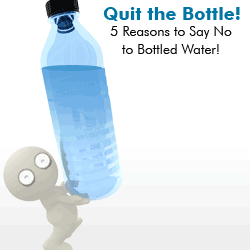
Your body is estimated to be about 60 to 70 percent water. Blood is mostly water, and your muscles, lungs, and brain all contain a lot of water. Your body needs water to regulate body temperature and to provide the means for nutrients to travel to all your organs. Water also transports oxygen to your cells, removes waste, and protects your joints and organs.
You lose water through urination, respiration, and sweating. If you are very active, you lose more water than if you are sedentary. Diuretics such as caffeine pills and alcohol result in the need to drink more water because they trick your body into thinking you have more water than you need. Symptoms of mild dehydration include chronic pains in joints and muscles, lower back pain, headaches, and constipation. A strong odor to your urine, along with a yellow or amber color indicates that you may not be getting enough water. Note that riboflavin, a B Vitamin, will make your urine bright yellow. Thirst is an obvious sign of dehydration and in fact, you need water long before you feel thirsty.
When should you be drinking more water than normal? There are factors that influence water needs You may need to modify your total fluid intake depending on how active you are, the climate you live in, your health status, and if you're pregnant or breast-feeding.
If you exercise or engage in any activity that makes you sweat, you need to drink extra water to compensate for the fluid loss. An extra 400 to 600 milliliters (about 1.5 to 2.5 cups) of water should suffice for short bouts of exercise, but intense exercise lasting more than an hour (for example, running a marathon) requires more fluid intake. How much additional fluid you need depends on how much you sweat during exercise, the duration of your exercise, and the type of activity you're engaged in. During long bouts of intense exercise, it's best to use a sports drink that contains sodium, as this will help replace sodium lost in sweat and reduce the chances of developing hyponatremia, which can be life-threatening. Also, continue to replace fluids after you're finished exercising.
Hot or humid weather can make you sweat and requires an additional intake of fluid. Heated indoor air also can cause your skin to lose moisture during wintertime. Further, altitudes greater than 8,200 feet (2,500 meters) may trigger increased urination and more rapid breathing, which use up more of your fluid reserves.
Illnesses or health conditions. Signs of illnesses, such as fever, vomiting, and diarrhea, cause your body to lose additional fluids. In these cases, you should drink more water and may even need oral rehydration solutions, such as Gatorade, Powerade, or CeraLyte. Also, you may need increased fluid intake if you develop certain conditions, including bladder infections or urinary tract stones. On the other hand, some conditions such as heart failure and some types of kidney, liver, and adrenal diseases may impair the excretion of water and even require that you limit your fluid intake.

Pregnancy or breast-feeding.
Women who are expecting or breastfeeding need additional fluids to stay hydrated. Large amounts of fluid are used especially when nursing. The Institute of Medicine recommends that pregnant women drink 2.3 liters (about 10 cups) of fluids daily and women who breastfeed consume 3.1 liters (about 13 cups) of fluids a day.
How Much Water do You Need to Drink? A good estimate is to take your body weight in pounds and divide that number in half. That gives you the number of ounces of water per day that you need to drink. For example, if you weigh 160 pounds, you should drink at least 80 ounces of water per day. If you exercise you should drink another eight-ounce glass of water for every 20 minutes you are active. If you drink alcohol, you should drink at least an equal amount of water. When you are traveling on an airplane, it is good to drink eight ounces of water for every hour you are on board the plane. If you live in an arid climate, you should add another two servings per day. As you can see, your daily need for water can add up to quite a lot. Twenty percent of your water needs will come from the foods you eat.
The rest of your water need should come from the beverages you drink. Water is the best choice. Sodas have a lot of sugar in them, so if you drink sodas, you may take in more calories than you need. Herbal teas that aren't diuretic are fine. Sports drinks contain electrolytes and may be beneficial, just look out for added sugar and calories that you don't need. Juices are good because they have vitamins and nutrients. Caffeinated beverages will also add to your daily water need. Even though caffeine is a diuretic, if you regularly consume caffeine, your body will regulate itself to that diuretic effect.
It's generally not a good idea to use thirst alone as a guide for when to drink. When you feel thirsty, you may already be slightly dehydrated. Further, be aware that as you get older your body is less able to sense dehydration and send your brain signals of thirst. Excessive thirst and increased urination can be signs of a more serious medical condition. Talk to your doctor if you experience either. To ward off dehydration and make sure your body has the fluids it needs, makes water your beverage of choice. Nearly every healthy adult can consider the following:
- Drink a glass of water with each meal and between each meal.
- Hydrate before, during, and after exercise.
- Substitute sparkling water for alcoholic drinks at social gatherings. If you drink water from a bottle, thoroughly clean or replace the bottle often.



